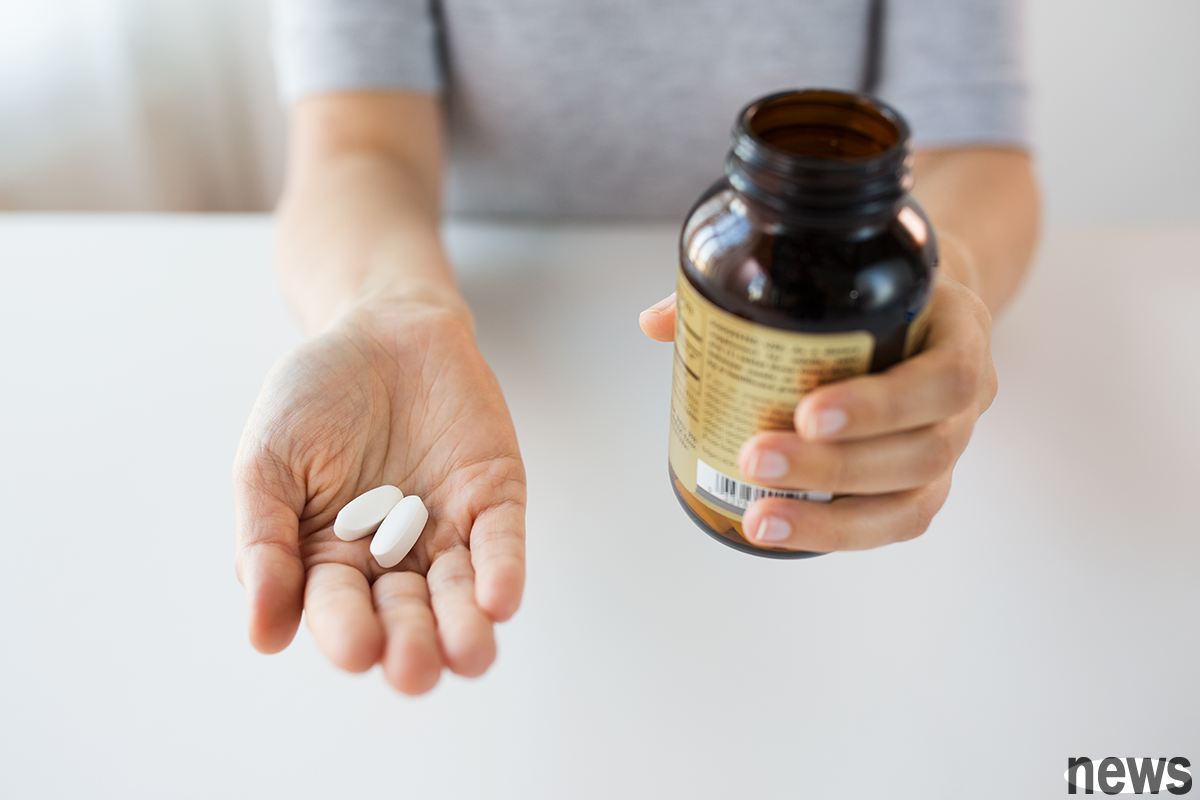
Contemporary Medical News Website (medicalnewstoday.com) published an article titled "Why too much vitamin D may be a bad thing" on March 25, 2019. According to the article, a new study on the impact of vitamin D found that eating too much vitamin D may cause slow reactions and increase the risk of falling in the elderly.
The U.S. Health Administration website (ods.od.nih.gov) also pointed out that vitamin D poisoning is almost caused by excessive use of supplements. When the amount of vitamin D in the blood becomes too high, poisoning will occur, such as nausea, vomiting, poor appetite, constipation, weakness and weight loss. Vitamin D can also lead to increased blood calcification, disorders and cardiac rhythm problems. Excessive vitamin D can also damage the kidneys. Therefore, there is a limit on taking vitamin D: 1000 to 1500 IU per day for babies (international units), 2500 to 3000 IU per day for children aged 1-8, and 4000 IU per day for children aged 9 and above, adults, pregnant women and breastfeeding adolescents and women.
{9 Calcium is the main component of bones. Vitamin D can also prevent cancer and diabetes.When the skin is exposed to sunlight, the body will synthesize vitamin D. The amount of vitamin D produced by the skin depends on several factors, including place, seasonality and skin pigmentation. During winter, vitamin D production may be reduced or completely gone. People can also earn vitamin D from salmon, sardine, canned gold gun, rosy and sausage. Vegetarians can earn this vitamin by eating egg yellow, mushrooms, soy milk, malt slices and oatmeal slices.
However, some elderly people are difficult to absorb vitamins because they cannot regularly access sunlight. In this case, taking vitamin supplements or multiple vitamins containing vitamin D may help promote bone health and improve memory. Research has linked vitamin D deficiency with diseases such as dementia, depression, diabetes, autopsy and schizophrenia. As we grow older, it is important to ensure that our bodies receive appropriate vitamin D, as the risk of cognitive impairment and insecurity may increase.
According to data from the U.S. Health Administration (NIH), it is recommended that each age group take vitamin D daily as follows.
Baby 0-12 months: 400 IU
1-18 children: 600 IU
Adults over 19-70: 600 IU
Adults over 70: 800 IU
Pregnant or breastfeeding women: 600 IU
Latest research found the cause of fallThe article says that excessive dose of vitamin D can also bring risks. A study led by Rutgers University found that when older women who are overweight or obese take vitamin D more than triple the recommended daily dose, their reaction is slower, and slower reactions may increase fall risks. The Centers for Disease Control and Prevention (CDC) estimates that more than one-quarter of adults 65 and above die each year. This was equivalent to 29 million falls, 3 million emergency clinics, 800,000 hospitalizations and 28,000 deaths.
Recently, the results of research by scientists at Rogers University were published in the Journal of Geriatrics: Series A. The researchers analyzed the effects of vitamin D on three groups of women aged 50-70 in a random control trial: the daily recommended dose of the first group was 600 IU; the second group was 2000 IU; and the third group was 4000 IU. The results showed that memory and learning improved in groups taking more than recommended daily doses. However, the same group has also experienced slowing reactions.
In-depth study author Sue Shapses said that "slower reactions may lead to other negative results, such as potentially increasing risk of falls and fractures." Researchers found that vitamin D supplements of about 2,000 IU or more per day can increase the risk of falling. Slower reactions may be the cause of increased risk of falls.
According to scientists, taking 4000 IU of vitamin D per day may not be a problem for young people, but it may affect the ability of older people to walk or maintain balance to avoid falling. They believe that more research is needed to determine whether slower reactions are related to an increase in falls and injuries. Long-term examination of vitamin D supplements in the population may be the next step in studying this problem.

The Internet Doctoral Medical Website (www.webmd.com) published an article titled "Many Americans may take too much vitamin D" on June 20, 2017. The article says that research found that more people exceeded the daily safety limit.
certificates show that in 2014, 3% of U.S. adults took more than 4,000 IU of vitamin D per day, exceeding the safety limit. In 2007-2008, only 0.2% of people exceeded this.
Adults under 70 years of age and under only 600 IU are recommended for daily vitamin D. For those over 70 years old, it is recommended to have 800 IU per day. "It's not better to eat more vitamins," said study author Mary Rooney, a Minnesota PhD student.. ”
She said that there are not many studies on long-term health results for high-dose supplements, but studies suggest potential hazards, such as excessive calcification in the blood, which may lead to vascular deposition. One reason people take this extra vitamin D may be worrying about low vitamin content, because vitamins are of great importance for good bone health.
Samantha Heller, a senior clinical nutritionist at the Lange Medical Center in New York City, New York, did not participate in the study. She said many people may need to take Vitamin D supplements to get enough doses. However, humans earn most of their vitamin D from the sun, but the use of sunscreen, indoor work, reducing outdoor activities, aging and obesity are part of the reason why many people have low vitamin D levels.
Runi was worried that he might be too far in another direction. Researchers looked at nearly 40,000 national survey information. They found that the trend of increasing vitamin D taking supplemental vitamin D has been found in most years, gender, and ethnic groups. People over 70 are most likely to take 4000 IU per day. Women and white people are also more likely to take higher doses of vitamin D. Luni suggested consulting with the doctor before taking high doses of vitamin D.